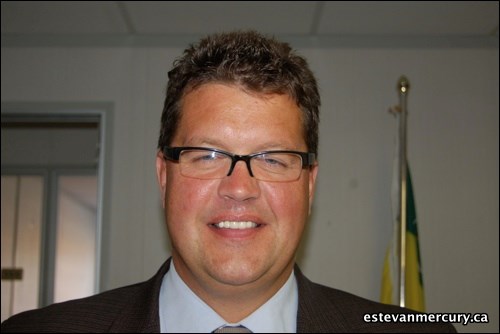Thanks to a couple of recent announcements from the provincial government, the South East Cornerstone Public School Division has been forced to call an audible of sorts.
In January the government announced that schools from throughout the province would be moving to 950 instructional hours a year from the current 930.
With the mandate that the plan be completed by May 1, Cornerstone and other school divisions throughout the province have been forced to alter their calendars for the 2013-2014 school year.
Cornerstone's new five-day school year was presented at the regular board of education meeting on Thursday in Weyburn.
Director of education Marc Casavant said Cornerstone has a committee in place that works on creating a calendar in concert with the Holy Family Roman Catholic School Division. Once the committee decides on a handful of options they are taken to their staff for a vote.
"Our process that way hasn't changed at all," said Casavant. "The changes we made were to add in the 20 hours of instruction that we were missing to hit the 950 hours of instruction. We are complying with legislation and we will move forward here."
To get to their target, Cornerstone bumped up the number of instructional days from 186 to 190. They accomplished that by decreasing the number of professional development days for teachers and removing the February break.
"Through our discussions with our in-school administrators and our teachers, the feedback we were receiving was don't give a minute or two on each period, that's not going to justify improving student achievement. But if you could add three or four periods to our year, we might actually be able to finish teaching the content that we are asked to be teaching. That is certainly our hope and I guess we will monitor it over the year and see how it works out."
During the presentation it was noted that the new calendar takes into account what is best for students. Casavant said one positive is that by adding instructional days instead of extra minutes to each period, the school day won't need to be longer.
"We often hear in rural Saskatchewan that the kids are on the bus enough so to continue to add earlier pick-up times and later drop-off times, I don't think many parents would be happy to hear that. There was careful thought put into the preparation of the calendar and we decided to go with more days rather than adding minutes to the day."
School divisions also learned last week that the province is planning to move to standardized testing in the future.
Currently students take standardized tests in mathematics, reading and writing but only in certain grades. The new plan calls for most students in the province to take standard tests in the majority of subjects each year.
Casavant said it appears the Ministry of Education clearly wishes to have more information on how students are performing and feels the testing at the ministry level should help "all of us to become more literate in the whole area of assessments and providing feedback to teachers much sooner than what we have in the past with the old assessment for learning program.
"We see this as a positive if the data is used for continuous improvement. We see the benefit of the assessment program that the ministry is introducing."
Casavant said he expects the assessments to begin sooner rather than later, and noted that a number of teachers have been seconded to create the tests.
He added the announcement doesn't represent a major change for Cornerstone as the division has always used data to support ongoing improvement efforts.
"We've got areas to grow more than likely, but I also believe that we are well on our way and leaders in this area in the province," said Casavant who added that with more data available, educators will have more tools to help students improve.
"Whether it is a hockey player or a piano player, the ability for a coach to give a student feedback is what is key. I think the more feedback we can give students so that they understand where they are at on any given day, they can be their own assessors and when they start to assess themselves, that is where we are really going to see progress."




